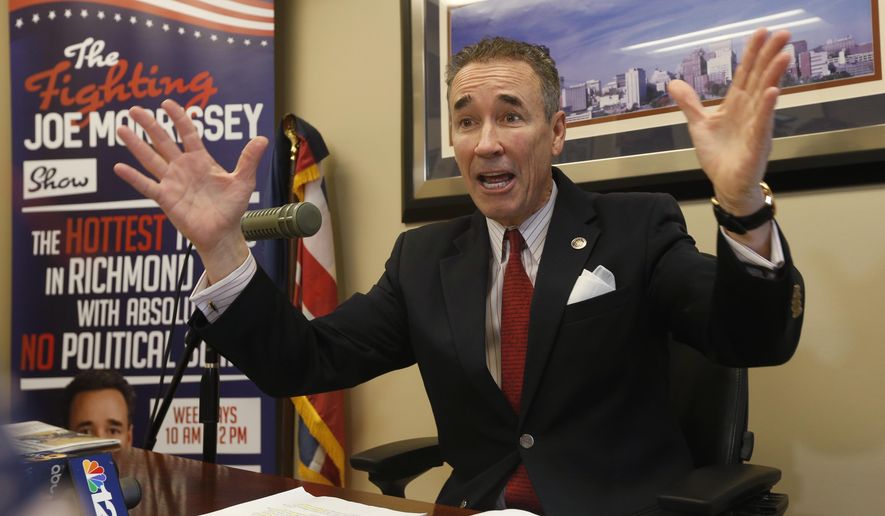RICHMOND, Va. (AP) - Defense attorneys call it “the jury penalty.”
It’s a centuries-old sentencing system in Virginia that calls for juries to decide punishment for criminal defendants, and often leads to stiffer sentences than what judges give or prosecutors offer in plea deals.
This sentencing structure has been in place for 224 years, but under a bill recently approved by the state legislature, Virginia is expected to turn sentencing over to judges, joining the vast majority of states around the country. Democratic Gov. Ralph Northam, a strong supporter of criminal justice reform, is expected to sign the bill into law.
The proposal sparked fierce debate during a special legislative session focused on criminal justice and police reform. Supporters of the change said giving judges the sentencing responsibility will result in fairer sentences, but prosecutors predicted it will result in more jury trials and therefore require additional judges, court clerks and public defenders.
The bill’s sponsor, Democratic Sen. Joe Morrissey from Richmond, said that under the current system, many people charged with crimes in Virginia are so fearful of getting a severe sentence from a jury that they often accept a plea deal from prosecutors that includes a longer sentence than they would typically get from a judge.
Unlike judges, juries in Virginia are not given state sentencing guidelines that would tell them what a typical sentence would be for a particular crime, and they tend to hand out stiffer sentences. In fiscal year 2019, sentences handed down by juries went above sentencing guidelines 37% of the time, and in 2018, juries exceeded sentencing guidelines nearly 50% of the time, according to annual reports by the Virginia Criminal Sentencing Commission.
“Jurors have no idea what a normal sentence is,” Morrissey said. “That’s why it is important to have a judge sentencing who has the guidelines and can put it into context.”
But prosecutors said turning sentencing over to judges will result in more defendants going to trial instead of accepting a plea deals, adding strain to a judicial system already struggling with a large backload of cases caused by the postponement of jury trials during the ongoing coronavirus pandemic. Prosecutors believe the state will end up needing more judges, public defenders, court clerks and support staff to handle longer trial dockets.
Jeff Haislip, president of the Virginia Association of Commonwealth’s Attorneys, said prosecutors are also concerned that the goal of the bill appears to be to get more lenient sentences for defendants.
“In jurisdictions where you have multiple jury trials lined up, if the goal is to get the defendant a better deal, that may not be in the best interests of public safety,” Haislip said.
Republican Sen. Mark Obenshain voted against the legislation, saying sentencing decisions should be left to jurors.
“We are saying we don’t trust the people in our communities to make judgments about the appropriate punishment for criminal behavior. We have entrusted that to our friends and neighbors.” Taking that away, he said, “is the wrong policy choice.”
Only six states - Virginia, Arkansas, Kentucky, Missouri, Oklahoma and Texas - use juries to sentence defendants in non-capital felony cases. The Virginia legislation would turn over sentencing to judges except when a defendant requests sentencing by a jury.
Morrissey said he believes the number of jury trials will not increase significantly because prosecutors - knowing that judges generally give out lighter sentences than juries - will begin to offer reasonable sentences as part of plea deals. He said he believes the change will save the state millions of dollars in the long run because fewer inmates will receive excessive sentences and the average length of incarceration will go down, meaning lower prison costs.
The change would become effective in July 2021. Northam’s spokeswoman, Alena Yarmosky, said Northam is “committed to comprehensive criminal justice reform” and is in the process of reviewing the legislation.
“The lives of Virginians that are affected by this is immeasurable,” said Morrissey. “It’s not just defendants who are sentenced to an excessive sentence. It’s also their families.”




Please read our comment policy before commenting.